'Massive eruption,' like Minneapolis protests, is what drives change: Experts
The protests in Minneapolis are in the wake of George Floyd's death.
This is what it takes to be heard.
That is the sentiment shared by a protester, sociologist and historian on the protests that have erupted and caused destruction in Minneapolis over the death of George Floyd, a black man who was seen in a disturbing video pinned down by a white police officer. That officer, identified as Derek Chauvin, was charged with third-degree murder and manslaughter on Friday.
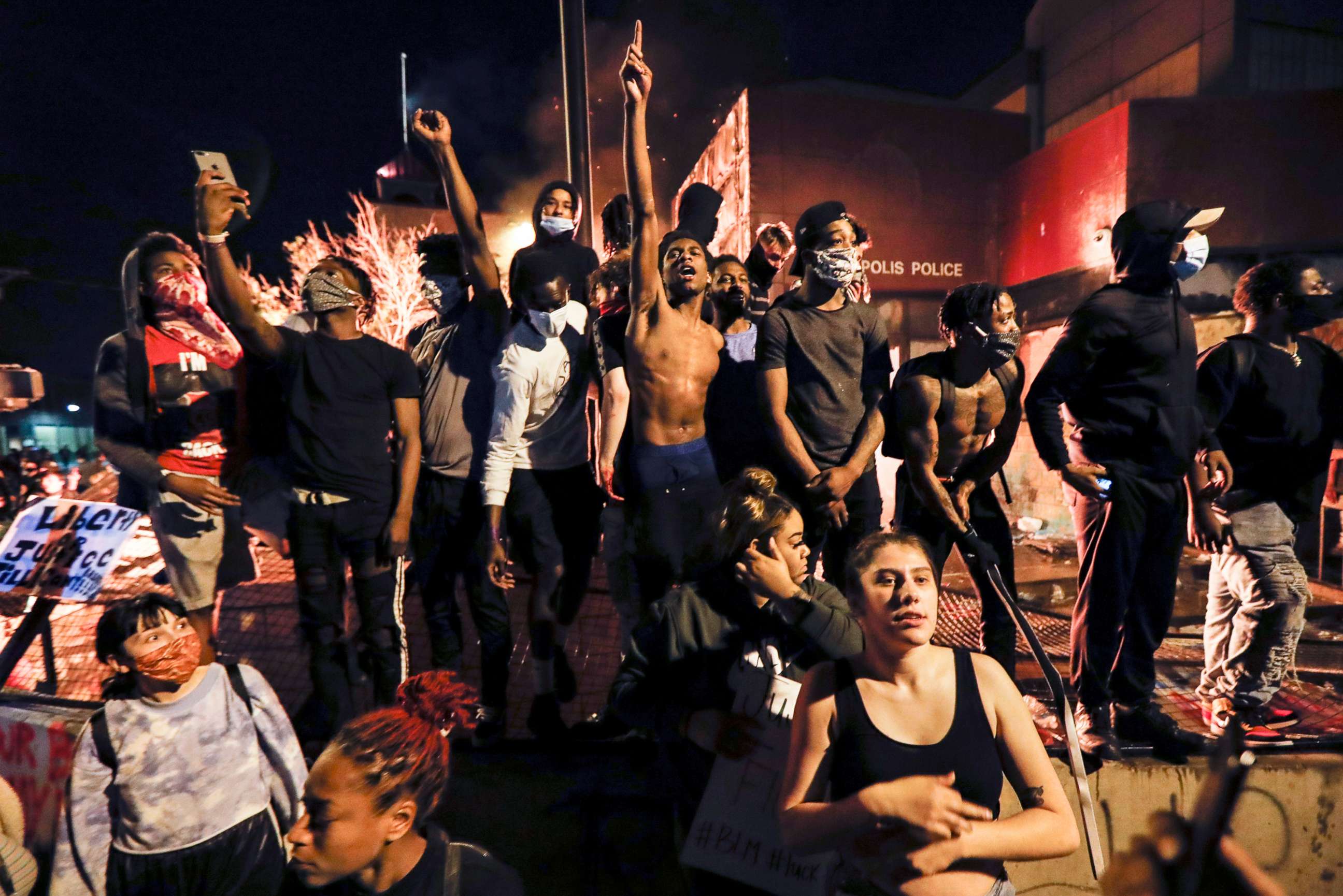
Protesters have been calling for an end to police brutality against black Americans -- and, simply, to be heard in their calls against racism. These are calls that have been made before.
"[Former San Francisco 49ers quarterback] Colin Kaepernick bent his knee on American soil, on the gridiron. He was blackballed. That was peaceful," Dr. Michael Eric Dyson, a professor of sociology at Georgetown University, told ABC News. Kaepernick drew national attention for kneeling during the national anthem to protest police brutality against people of color, and since the end of the 2016 season, he has remained unsigned, despite a successful stint with the 49ers.
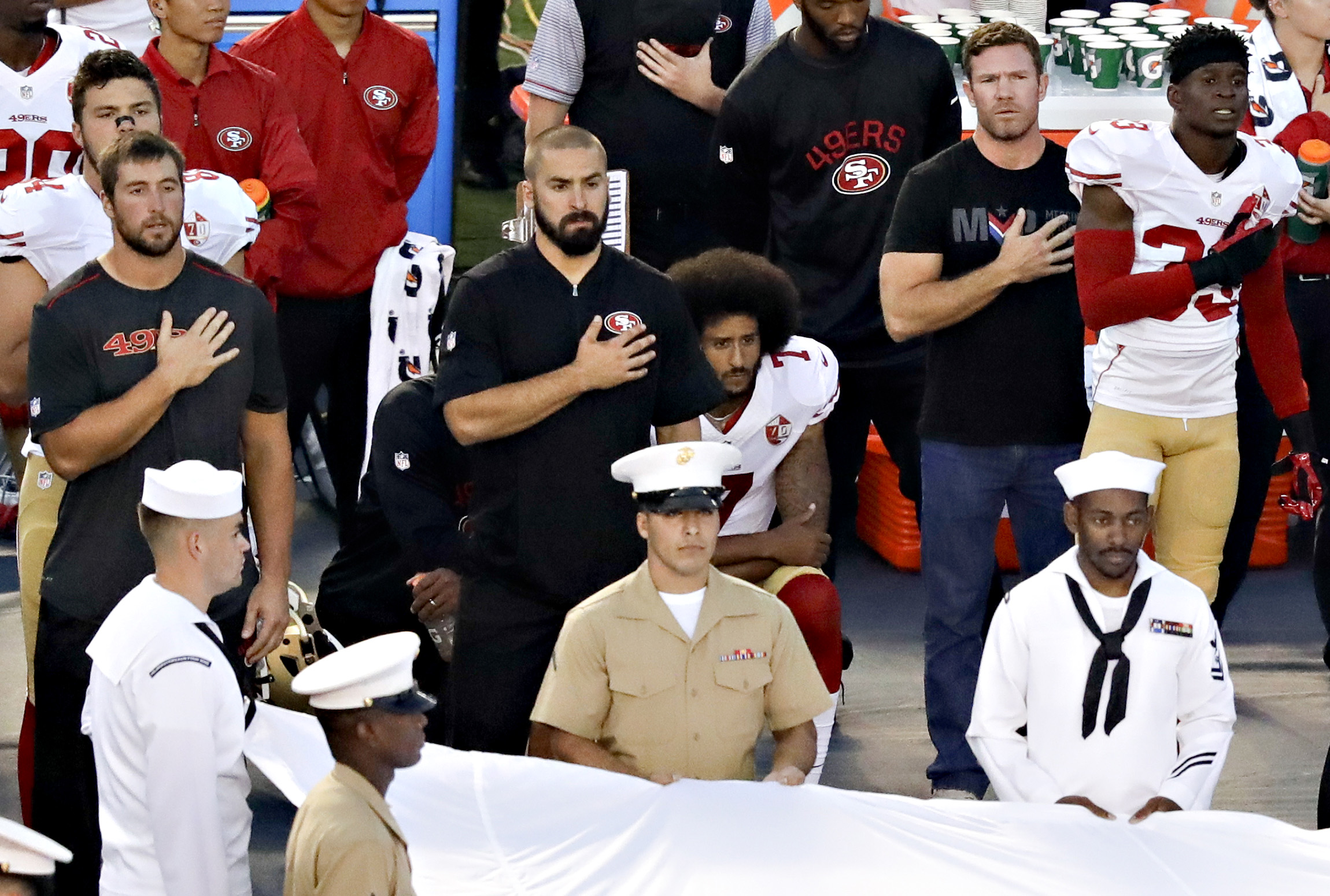
"When black basketball players wore 'I can't breathe' T-shirts, that was peaceful," Dyson continued. "When black people stand up daily and protest one injustice after the other, that's peaceful."
"But we can't be heard," he said. "The perception is when we are peaceful and demanding our rights, America simply won't hear."
Dyson said Floyd's death underscored that the lives of black people "don't matter and America finds us expendable."
'History shows that it often takes that to fully get the attention of officials'
Gov. Tim Walz called the protests in the last two days, which have included fires and looting, "reckless." He said it was imperative that order be restored in order to battle real issues.
Dr. Heather Thompson, a professor of history and African American studies at the University of Michigan, laughed at Walz's comments when asked about them by ABC News.
"I laugh because that is taken straight from a very, very long historical playbook," Thompson said. "Every federal, state or local official in American history, when faced with protests that turn particularly chaotic, always say that this is not really a protest. That these are 'thugs,' that these are 'troublemakers.'"
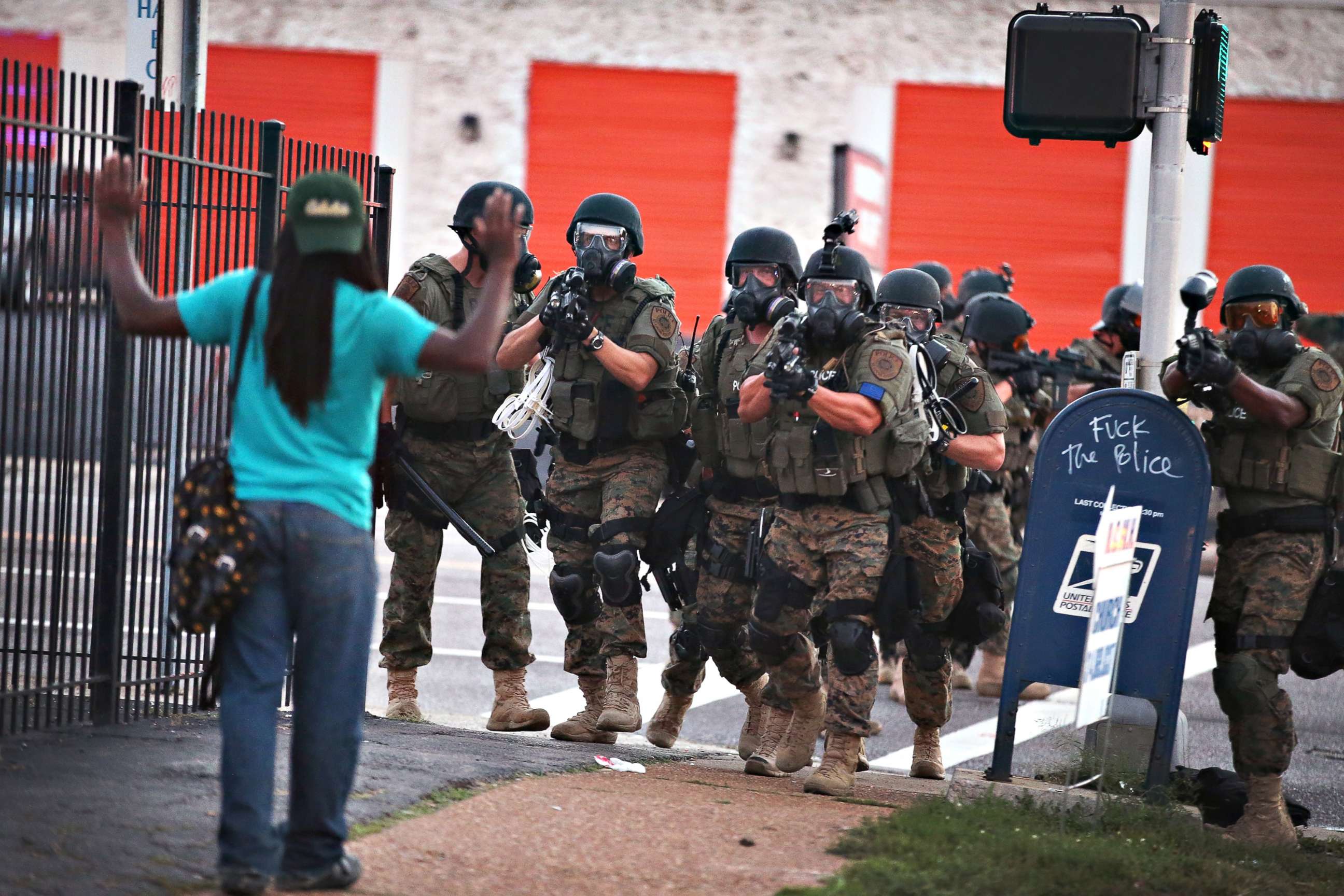
President Donald Trump referred to the protesters as "thugs" on Thursday morning in a tweet, a word used by some to negatively describe black men. "In the 21st century, this negative imagery of Black males has frequently utilized the negative connotation of the terminology 'thug,'" according to a 2016 paper from the National Center for Biotechnology Information.
Even these conversations about protests, Thompson said, are repetitive.
"Promises have been made that people in charge are gonna address something that's wrong and they clearly are not addressing it, so the protests explode, and then there's always this huge debate about whether or not those protests are productive or unproductive," she said.
Ultimately, if history has taught people anything, Thompson said it's that "it was usually not until the massive eruption in the streets" that change came along.
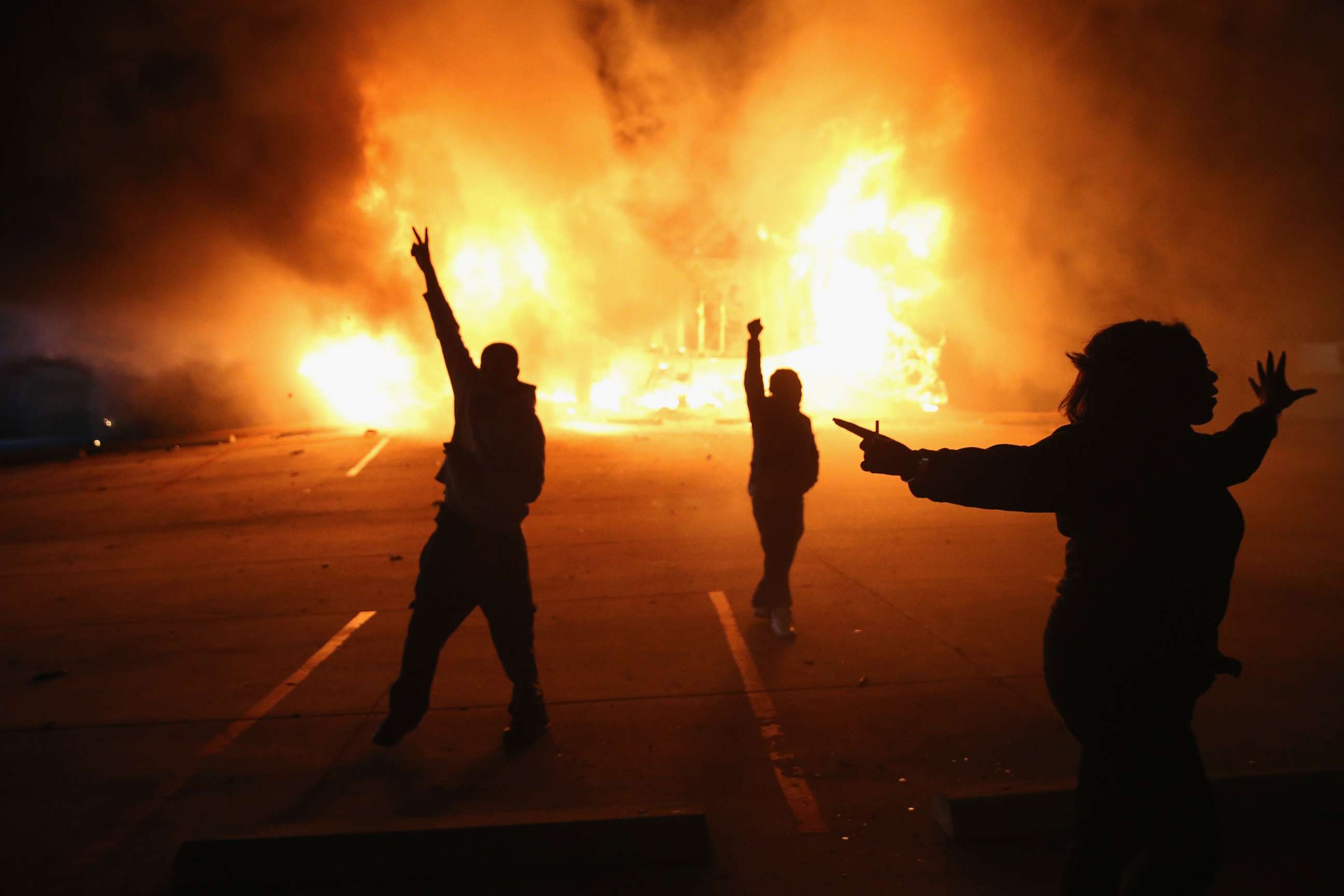
She gave the example of the Black Lives Matter movement that emerged after protests erupted in Ferguson following the killing of Michael Brown in 2014. Police departments then began discussing body cameras and legislatures began seriously discussing criminal justice reform.
After dramatic AIDS protests in the 1980s, Thompson said, the government was pressured to think about funding treatments.
It was after riots broke out in cities in the late 1960s, particularly in Detroit and Newark, against police brutality that President Lyndon B. Johnson formed a commission to address the issue, according to Thompson.
"As discomforting as it, history shows that it often takes that to fully get the attention of officials," she said.
However, while incremental progress is sometimes made, protests do not always lead to sweeping change. Despite regular demonstrations in the past six years to stop the deaths of black people at the hands of law enforcement, Floyd's death is not the first such incident in 2020 to draw national attention. His death came about three months Ahmaud Arbery, who was black, was allegedly killed by two white men, one of whom was a former police officer, while out on his daily jog. About a month after that, front-line worker Breonna Taylor, who was black, was allegedly shot and killed in her home by police.
'He has to go into the police department and convince those officers that they work for the community at large'
Durham, North Carolina, Police Chief Cerelyn 'C.J.' Davis, who is also the president of the National Organization of Black Law Enforcement Executives, told ABC News that Floyd's death has impacted her "personally and deeply."
"I think of the many African American young men in my life. Family members and friends who have kids, my nephews and … what their perception is of law enforcement and how does this impact them," Davis said.
She said she believes the protests are not only about Floyd, but the other black men who have died at the hands of law enforcement.
"I think what we're seeing is people expressing their frustration that enough is enough," Davis said. "They feel like these aggressive measures are what have to happen in order to get some attention or impact."
Davis said that while she can "absolutely identify with the anger and frustration," the concern of law enforcement is to allow people to exercise their First Amendment right in a safe environment.
"Sometimes when such aggression and frustration is exhibited in this manner, we have further injuries, further loss of life, further loss of property and that is very concerning too," Davis said. "My perspective is understanding both sides of the issue."
She said it will take time before the black community can trust law enforcement, but she believes Minneapolis Chief of Police Medaria Arradondo is up for the job.
"He's a great leader. He's got his work cut out for him too because aside from trying to assuage the community, he has to go into the police department and convince those officers that they work for the community at large," Davis said.
'How can you ask us for patience?'
Summy Banjo, a 24-year-old who lives in Oakdale, Minnesota, attended the protests on Wednesday and Thursday night, when what had been mostly peaceful protests turned chaotic.
Banjo stood outside of the home of Chauvin on Wednesday night, two days before he was charged with third-degree murder and manslaughter. She told ABC News her goal was to make it clear to officials he should not be comfortable in his home.
She said it was a mostly peaceful event, but she also believes in the non-peaceful protests.
"People are standing up for themselves," she said. "Of course there are some people whose intentions aren't true … but it shouldn't take away from the fact that we are protesting and rebelling against a system."
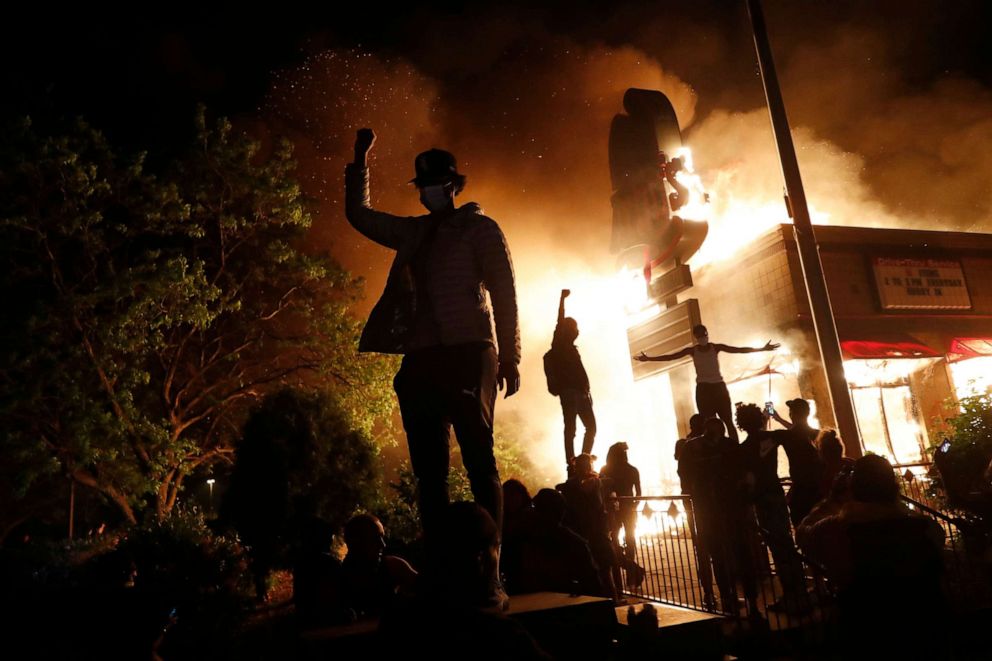
Banjo still remembers the death of Philando Castile, who was shot to death by a Minnesota police officer in 2016. She said her own son was born the night she learned that Castile was shot and killed.
"I gave life to my son, and that day, another black man was killed," Banjo said.
She knows officials have asked for patience and civility during this time, but four years later she is asking how.
"How can you ask us for patience when time and time again, you haven't given us the accountability we want?" Banjo said. "How much time do you need?"




